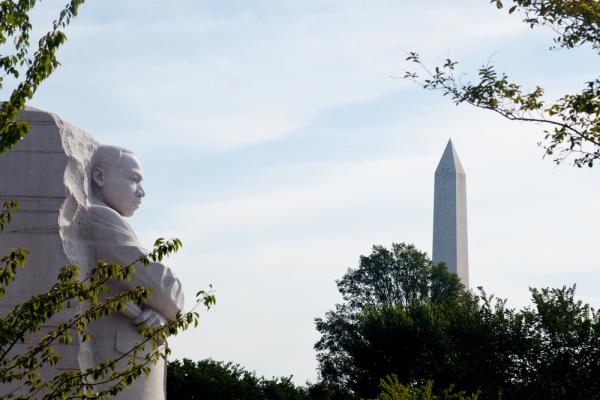In cities and towns across our nation, this weekend’s coordinated actions for the #BlackLivesMatter movement center on reclaiming Martin Luther King Jr.’s radical legacy. As you may recall, Missouri Gov. Jay Nixon and President Barack Obama — among others — invoked the nonviolence of King in their calls for peace following the non-indictment of Darren Wilson. As Martin Luther King Jr. Day approached, organizers had to field countless criticisms by white people telling them, “King wouldn’t approve of what you’re doing” and “I’ve studied his work, I know he wouldn’t react like you have.”
Based on comments like these, it stands to reason that white people in the United States may need a jolt of reality about King’s anti-capitalist agitation.
King was outspoken against capitalism’s oppressive clutch on both the national and global levels. King made it clear that racism and economics were intimately intertwined. I’m reminded of his classic quote, “What good is having the right to sit at a lunch counter if you can’t afford to buy a hamburger?”
King acknowledged that the discussion of class couldn’t be divorced from the discussion of race. While both conversations make us uncomfortable, somehow we would rather remember King as a civil rights leader only, and not also as a vocal critic of capitalism who instead favored a form of Democratic Socialism.
I often hear criticisms that protesters are disturbing the peace, employing overly aggressive tactics, and generally making people too uncomfortable. The hypocrisy in these claims is that King disturbed the peace, used aggressive tactics, and made people extremely uncomfortable. Why do we call for peace when what we mean is order?
Read the Full Article

